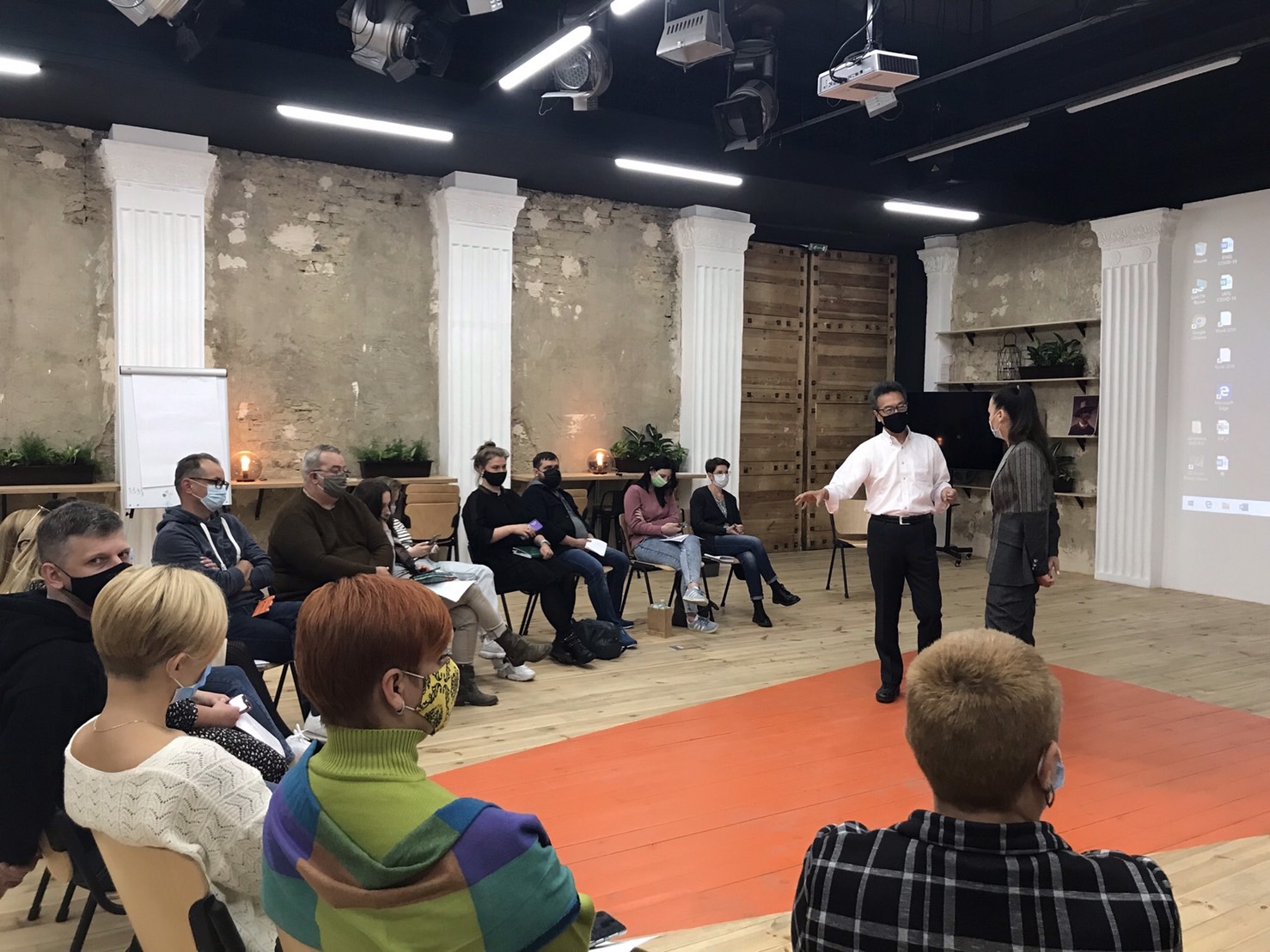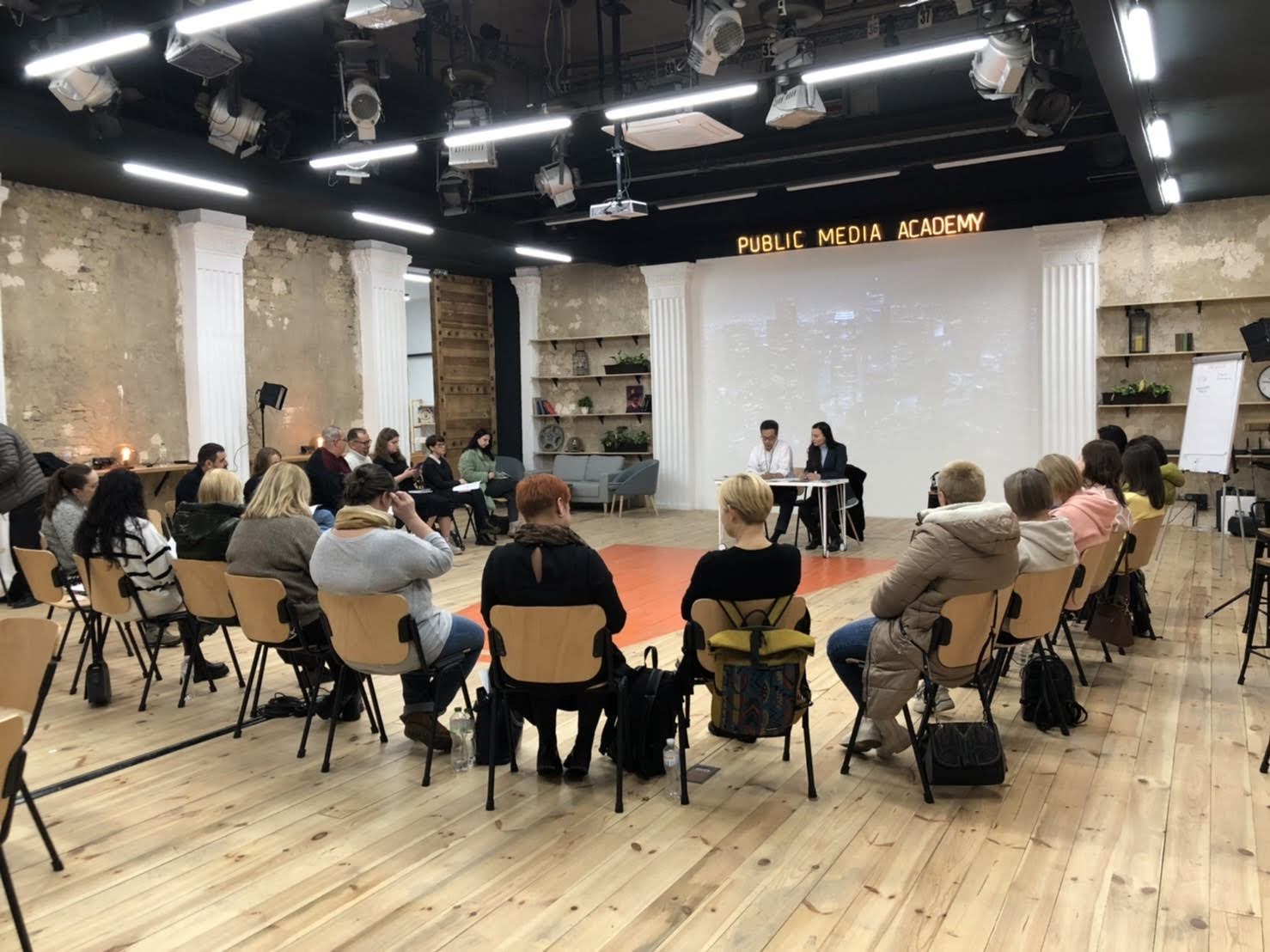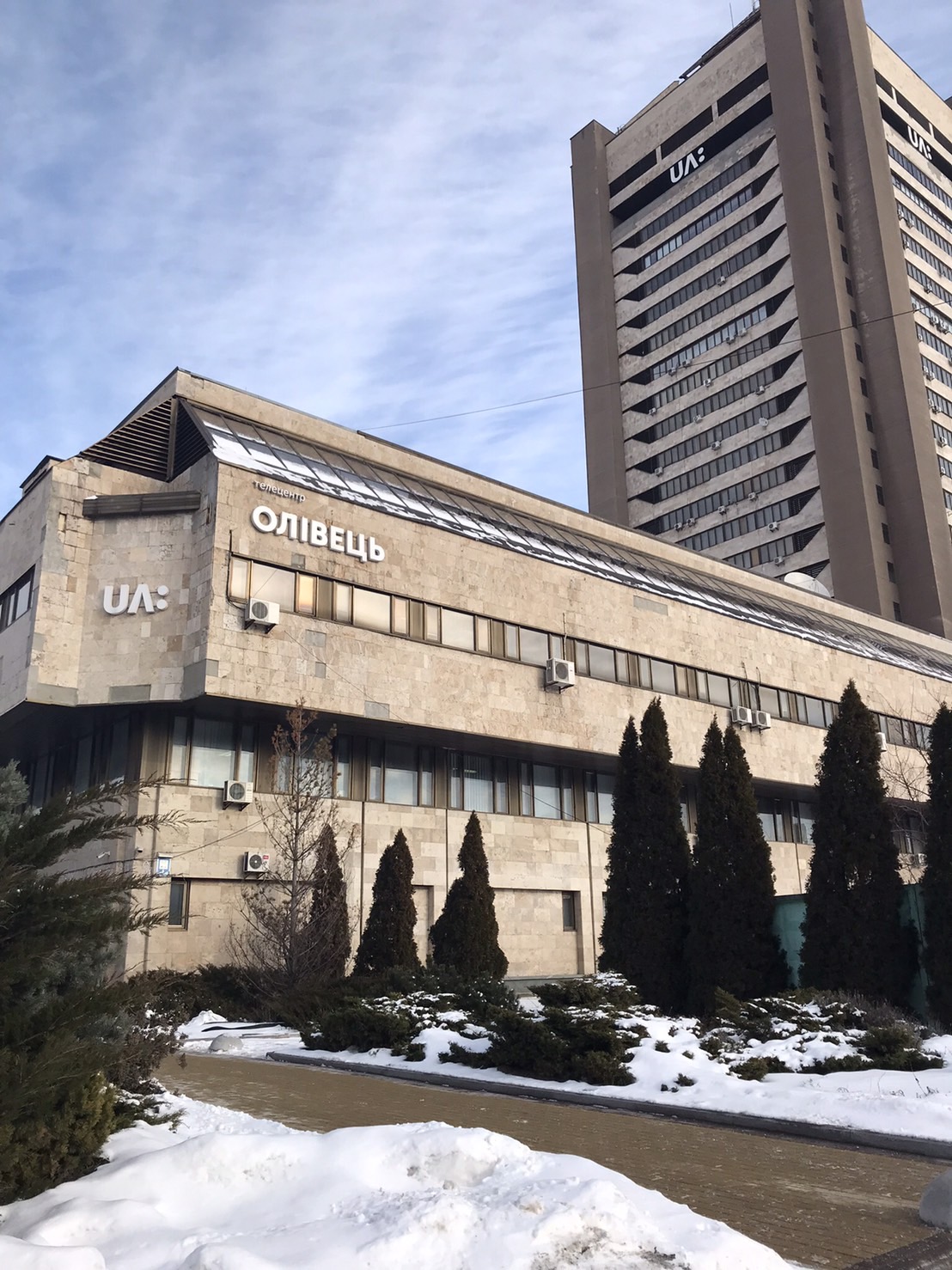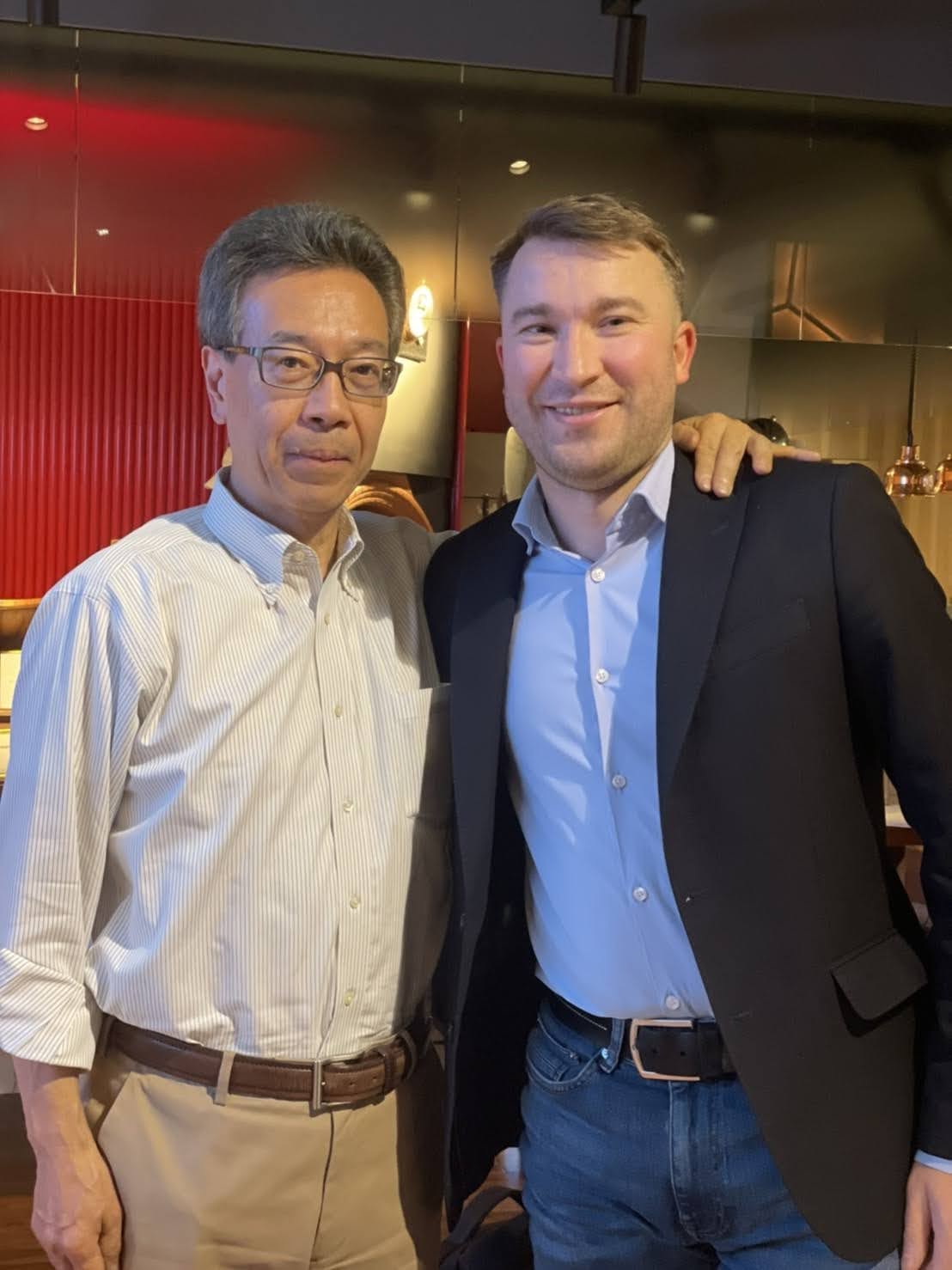31st JAMCO Online International Symposium
February 2023 -March 2023
Thinking about the Meaning of Life in a Time of Global Crises
Japan’s Aid Projects for Public Broadcasting:
An Examination of their Significance amid the Russian Invasion of Ukraine
International politics are being fundamentally altered by Putin – the archetype modern day authoritarian leader – and by the rise of the likes of Xi Jinping in China and Narendra Modi in India. The United States is the world’s greatest democracy, and yet even there, society has been polarized by Donald Trump, whom many Americans continue to support and identify with, even though he resorted to high-handed tactics when he was president. Democracy, once regarded as unassailably in the ascendant, and liberal values, such as the freedom of speech and the rule of law, are under fierce attack on a global scale.
A cult of personality, disdain for the rule of law, populism, and playing on fears and nationalism for political ends are all common methods employed by authoritarian rulers. But we should not lose sight of their attacks on and intolerance of broadcasters, newspapers, and others in the existing media.
The Public Broadcasting Company of Ukraine (PBC) was targeted by the Russian forces. A missile strike against the television tower in the capital Kyiv on 1 March 2022 resulted in the death of at least five people. The TV tower, which had been used by the PBC and commercial stations for their terrestrial broadcasts, was put out of action.
Prior to the attack, the Russian state-run TASS news agency reported the Russian Defense Ministry as saying that strikes would be mounted against places in Kyiv engaged in information warfare. Residents around these facilities were urged to leave. It appears that the aim was to take Ukraine’s broadcasting networks – the PBC and the other stations – off the air while they were actively trying to keep people informed about the war situation and the damage that was being inflicted.
The PBC was launched in January 2017 when around twenty local stations were placed under the umbrella of the state-run broadcaster in Kyiv. It is also referred to locally as Suspilne, the Ukrainian word for “public”. It has about 4,200 employees nationwide and operates two television channels and three radio services.
Immediately after the Russian invasion, sensing danger, the PBC moved its headquarters out of Kyiv to the western part of the country. But it subsequently re-established itself in the capital, where it continues to keep the nation and the world informed about the constantly changing situation and devastation. It is not widely known that Japan helped the PBC revamp its organization and train its personnel over a period of five years. This had been taking place right up to the invasion.
Ukraine has aspired to membership of the European Union since the time Petro Poroshenko was president, but the EU said that there would have to be greater progress in democracy, including media reforms. The transformation of the state-run broadcaster into a public entity was viewed as an important part of this process. The international community, and the Group of Seven countries in particular, became increasingly in favor of extending assistance to Ukraine following the Russian annexation of the Crimea in 2014. In response to a request from Ukraine, the Japan International Cooperation Agency (JICA), an independent administrative body under the jurisdiction of Japan’s Ministry of Foreign Affairs, decided to support the reforms at the PBC, and the ensuing aid project was put into the hands of NHK International, of which the author is an employee. NHK International is an affiliate of the Japan Broadcasting Corporation (NHK) that has been involved in aid projects for fostering public broadcasting in a number of countries, in addition to other international cooperation, such the provision of NHK programs.
NHK International put together a team of five people, most of whom had previously worked at NHK. The author, as head of the team, visited Ukraine on a total of twelve occasions in the five years from 2017. The project was concerned with three areas: creating arrangements for reporting in times of disaster and other emergencies; the production of educational and welfare-related programs suitable for public broadcasts; and improving the maintenance and management of broadcasting equipment.
Among these, reporting in emergencies might be regarded as a key part of public broadcasting, given the direct bearing on people’s lives and property. It required the building of supporting organizations and a changing of attitudes more in tune with public broadcasting. The creation of a nationwide network was the initial focus of the project.
Ukraine’s state-run stations were rather independently minded from the Soviet era, and tended to go their own separate ways. The PBC, taking the organizational set-up of NHK as a guide, implemented reforms which created news departments in all of its local branches that had previously been the local state-run stations. These departments were placed under the control of the head of the news department at PBC headquarters. A genuine network with live information flowing through it, however, does not emerge from mere changes on paper.
The author focused on the twenty or so heads of the local news departments subordinate to the headquarters in Kyiv. They were young – mostly in their thirties – and appeared to have little experience in news reporting, in addition to being isolated from the capital. Therefore the author made a point of organizing and putting on meetings and online workshops between them and headquarters so that they might at the very least talk to one another, trade information, get to know each other and bond. In the course of five workshops, one felt the emergence of a stronger identity and sense of solidarity among them.
Initially there were complaints about news sources being unwilling to meet or talk. The participants had next to nil experience in seeking out information for themselves when the PBC was a state-run entity. Information flowed in a one-way direction from the top.
The author pointed out that public broadcasting is altogether different from the state-run kind. His advice was that people ought to think and act for themselves, and that information is a matter of legwork. The participants were repeatedly encouraged to wine and dine with their news sources, which at the very least would get them willing to chat. Information could be gleaned from them later on. At each of the subsequent workshops there were cheerful comments about the friendships that had been struck up with news sources, the forging of good sources of news, and so on. One sensed that the young journalists were steadily maturing through the pride and enthusiasm they displayed in their work. One can picture them now diligently gathering news in different parts of Ukraine while exposed to dangers of war.
While this gradual change of attitudes was taking place in the workplace, the author attached particular importance to attitudes in the management on whom the future of public broadcasting rests. The author spoke with the chairman and members of the PBC’s managing board and the head of the news department during each visit to Ukraine. The topic was – what is public broadcasting?
Various points were made. State-run broadcasters are subject to tight government controls, while commercial stations are motivated by profit. This motive does not apply to public broadcasters. They are free of government control and exist to safeguard freedom and democracy and for the public benefit. Accordingly, they ought to distance themselves from the government to a certain extent, which means editorial independence is essential. Independent funding is the means for securing this.
The PBC relies on government grants and advertising for its revenue. The former accounts for about 95% of the total. The government is required by law to devote 0.2% of the national budget to such grants. However, the PBC has never received this sum in full since it became a public entity in 2017. The likelihood of the public accepting a system of license fees or receiving fees like that of the BBC or NHK is very slim, which means that PBC will have to continue relying on government grants for the foreseeable future.
In the meantime, tensions between the government and the PBC came to a head with the dramatic exit of the chairman of the managing board Zurabi Alasaniia in January 2019. Certain members purported to be allies of President Petro Poroshenko on the supervisory board of PBC, which has the power to appoint the chairman, were behind the presenting of an urgent motion that led to Mr. Alasaniia’s dismissal.
Mr. Alasaniia has a background in commercial journalism and his approach to news reporting was to keep a distance from the government. People close to Mr. Alasaniia say he had considerable support among staff because of his repeated refusals to conduct interviews for the government. He was viewed as an unflinching leader, and the feeling was that the PBC would not have come as far as it did without him. Following his dismissal, Mr. Alasaniia told the author that he had no intention of accepting the decision, and that he would fight the matter in the courts and win. A court subsequently ruled that the dismissal was illegal, and Mr. Alasaniia was reinstated in July that year.
The incident gave one a glimpse of the government’s irritation at Mr. Alasaniia’s actions. He ultimately gave Ukraine and the outside world a solid taste of what heading a public broadcaster entails. A firm willingness is required to maintain a certain distance from the government.
In April 2021, Mr. Alasaniia tapped 38-year-old Mykola Chernotytskyi as his successor. Mr. Chernotytskyi was the member on the managing board responsible for regional reform. The author during his visits to Ukraine had exchanged views with Mr. Chernotytskyi about organization building and the role of public broadcasting.
Mr. Chernotytskyi made it clear that he would follow his predecessor in distancing the broadcaster from the government. In the autumn of 2021 when government tried to alter the composition of the supervisory board with a view to intervening further in the workings of the PBC, Mr. Chernotytskyi met with the ambassadors of Japan and the other G7 countries asking for diplomatic lobbying to make the government desist.
Over the five years, public perceptions about the PBC have altered considerably, in part from the resoluteness displayed by the people at the top. Initially, the PBC was regarded as being no more than a billboard for passing on information from the government and the local authorities. Viewer ratings averaged at only around 1%. However, an opinion poll conducted in November and December 2020 by the European Union and the Council of Europe, among others, found that 34.2% of people were watching PBC every now and then, which put it seventh place among Ukraine’s television stations. On the other hand, it ranked fourth in terms of trustworthiness (35.2%).
Ukraine’s four media groups affiliated to business conglomerates had hitherto dominated the airwaves. However, the abovementioned poll found increasing public acceptance of the PBC as a platform for balanced and unbiased broadcasts.
The organization had struggled to distance itself from the government, but this might inevitably be obscured in the current conflict with Russia in the face of a common enemy.
Mr. Chernotytskyi is leading the broadcaster in the midst of war. In an interview with NHK, he mentioned that while broadcasts are subject to particular military restrictions in wartime, it was important that they do not transform into political ones. He signaled that the content of their broadcasts would be the subject of scrutiny after the war, by saying that while they doing what they can at the present time, the major task awaits them in the future of looking back to see whether journalists had been doing the right thing, and thinking about what might have been done better.
Aside from Ukraine, NHK International has been involved in projects in Kosovo (which was once part of Yugoslavia) and South Sudan to transform their respective state-run broadcasters into public ones.
The escalation of ethnic tensions accompanying the breakup of Yugoslavia led, among other things, to NATO’s military intervention in Kosovo in 1999. The problems there became viewed as a matter of international concern. Dispelling the tensions between the majority ethnic Albanians and minority ethnic Serbs remained an issue after Kosovo declared its independence in 2008. The aid project that commenced in 2015 saw a degree of progress toward reconciliation through, among other things, the first ever co-production and airing of programs for the Albanian and Serbian language services.
South Sudan broke away from the Sudan after twenty years of conflict to become Africa’s 54th independent nation in 2011. However, sufficient arrangements were not in place for the media or indeed the running of the country. NHK has accordingly been helping train personnel in accurate and fair news reporting to help shape a healthy civic society for sustaining a democratic state, as well provide training in program production that is conscious of the country’s multi-ethnic and multicultural makeup. The approach NHK takes to news reporting and program production is being used as a guide.
The project in Ukraine came to end in March 2022, but JICA plans to provide additional aid if there are signs of the war with Russia coming to an end. When the PBC’s headquarters in Kyiv were knocked out in the invasion, it was able to remain on the air by shifting its operations to Lviv in the west near the border with Poland. JICA is looking at providing equipment and helping train people in line with this development. NHK International remains keen to assist the PBC initiatives, bearing in mind the work NHK is carrying out to make NHK Osaka in Japan’s so-called second city a backup center for NHK headquarters in Tokyo.
So how many public broadcasters like the PBC are there internationally? Public Broadcasters International (PBI), which NHK among others helped create in 1990, says it has more than eighty full members, including the BBC and South Korea’s KBS, which in principle take it in turns to host an annual meeting to share views on the different issues facing public broadcasting.
In recent years we have seen considerable changes in the public broadcasting environment and the behavior of audiences. Online-based social media is making its presence increasingly felt as a means of acquiring information alongside traditional broadcasting and newspapers. Ultimately, the penetration of this media across a wide range of age groups has undeniably been a factor behind the acceleration of authoritarian tendencies. In the US, Donald Trump was able to get in touch directly with voters via Twitter, which enabled him to forsake and bypass existing media like broadcasting and newspapers, labeling them as “fake news”.
By distancing itself to a degree from power, public broadcasting is not only a source of fair and impartial information; it has a mission to convey a diverse range of views on socially divisive issues. Opinions have also been expressed about the new roles expected of it. Public broadcasting, for example, can be a haven for citizens when they assess policies and information in these times when so much information of an unreliable and ambiguous nature is being disseminated via the internet.
NHK is moving quickly to make the transition from public broadcasting to public media, which embraces the internet and other telecommunications. However, it has also copped considerable criticism for making decisions about the news in order to please certain people, and for its increasing inability to keep a check on power. The true worth of NHK is being put to the test in whether it can shape up by returning once more to the basics of public broadcasting, and whether it can respond to rising authoritarianism in concert with other public broadcasters around the globe. (31 October 2022)

The PBC workshops |

The PBC workshops |

PCB’s headquarters |

The author with Mykola Chernotytskyi, the head of managing board of PBC |
Atsushi Miyao
Project controller, NHK International
Joined NHK as a reporter in 1981. Worked at a number of local NHK stations before serving with the Political News and International News divisions. NHK correspondent in Seoul. Currently employed by NHK International.
 Return to 31st JAMCO Online International Symposium contents page
Return to 31st JAMCO Online International Symposium contents page








